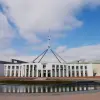100 Days On: Russia Rejects Ukraine Ceasefire Offer
Acting Ambassador, Deirdre Brown condemns Russia’s continued refusal to accept the full, unconditional ceasefire proposed by Ukraine 100 days ago. Innocent civilians continue to suffer from Russia’s choice to pursue a path of war.
Thank you, Madam Chair. I would like to add our thanks to you and other Troika members for your recent statement.
We currently find ourselves in a security situation that is more precarious, more unpredictable and more serious than any that we have experienced for decades. We will be judged by future generations on the steps that we take to defuse tensions and restore stability to our continent and beyond.
At the heart of the global challenges we face is Russia’s illegal war against Ukraine and its assault on the UN Charter and Helsinki Final Act. The United Kingdom will continue to stand resolutely with Ukraine as it seeks a just and lasting peace.
We remain convinced that an immediate and sustained ceasefire is the quickest route to stopping the killing and creating the space for negotiations on a framework for a lasting peace. As we have already heard, today marks 100 days since Ukraine offered a full, unconditional ceasefire on 11 March. During this time, not only has Russia rejected Ukraine’s offer, it has killed over 550 civilians and injured around 3000 more. It has launched its biggest aerial attacks of the war so far. And it has not just sustained its attacks, but increased them.
The brutal attack on residential buildings in Kyiv earlier this week, which killed 28 civilians and left a further 134 wounded, are the actions of an aggressor who thinks that the world is not watching. They are wrong.
The Kremlin does this while trying to convince the international community that it is serious about peace. All of us in this room know from bitter experience how much weight we should attach to Moscow’s words. You only need to look at the days leading up to the invasion when we heard in this room that speculation of an invasion was “unsubstantiated conjectures”. But let us analyse their words, nonetheless.
On 2 June in Istanbul, Russia presented its memorandum with its conditions for ending its illegal war. In contrast to Ukraine’s own proposals, which are serious, reasonable and constructive, Russia’s memorandum calls for a complete surrender of Ukraine’s internationally recognised territory and limits on Ukraine’s armed forces. President Putin knows that Ukraine cannot accept this: he is claiming territory his army has not been able to take in over three years of his illegal war, and trying to weaken Ukraine so he can continue the war in future. The Kremlin’s maximalist position is clearly inconsistent with international principles enshrined in the UN Charter and Helsinki Final Act – including sovereign equality, the inviolability of frontiers, the territorial integrity of states and the non-intervention in internal affairs. It is further evidence – in case any were needed – that President Putin is not yet serious about peace.
Madam Chair, today also marks the International Day for the Elimination of Sexual Violence in Conflict. There is mounting evidence of conflict-related sexual violence committed by Russian forces against Ukrainian civilians and prisoners of war, including from successive Moscow Mechanism reports. We will have more to say on this in our Joint Statement under the relevant agenda item later today.
Finally, Madam Chair, it has been 38 months since Russia detained our three OSCE colleagues, Vadym Golda, Maxim Petrov and Dmytro Shabanov. The United Kingdom again calls for their immediate release. Thank you.
https://www.gov.uk/government/speeches/100-days-since-ukraine-offered-a-full-unconditional-ceasefire-russia-continues-to-choose-war-uk-statement-to-the-osce

